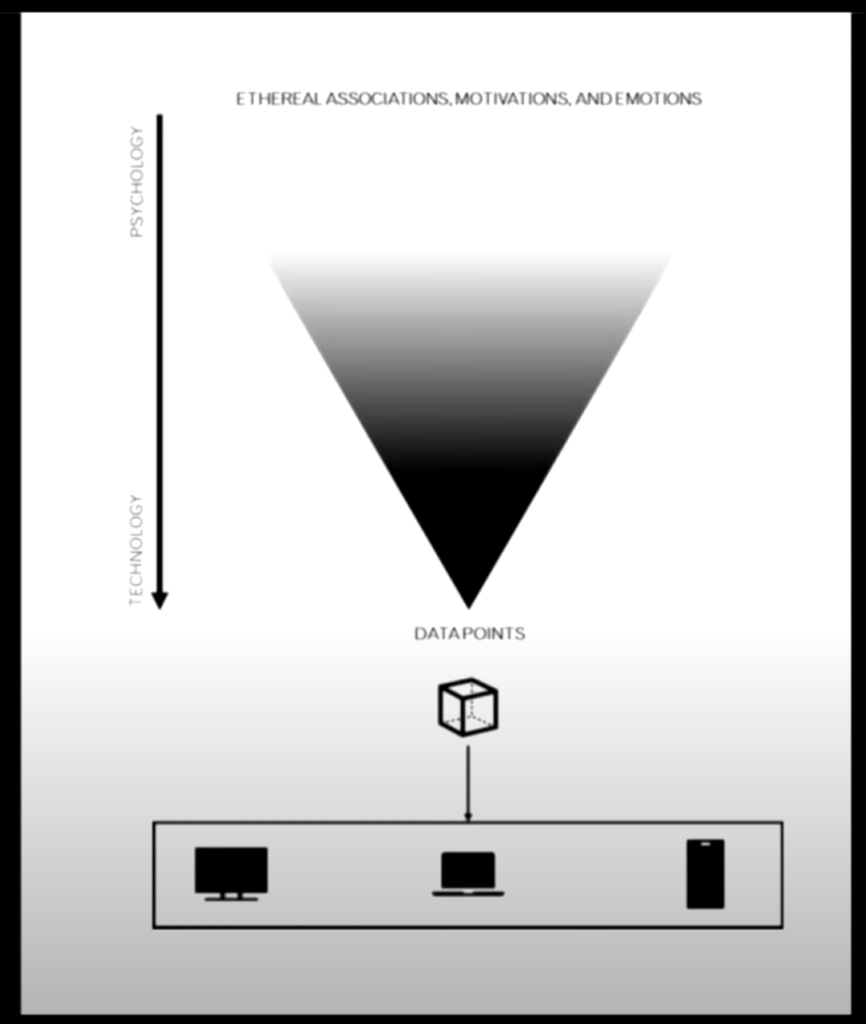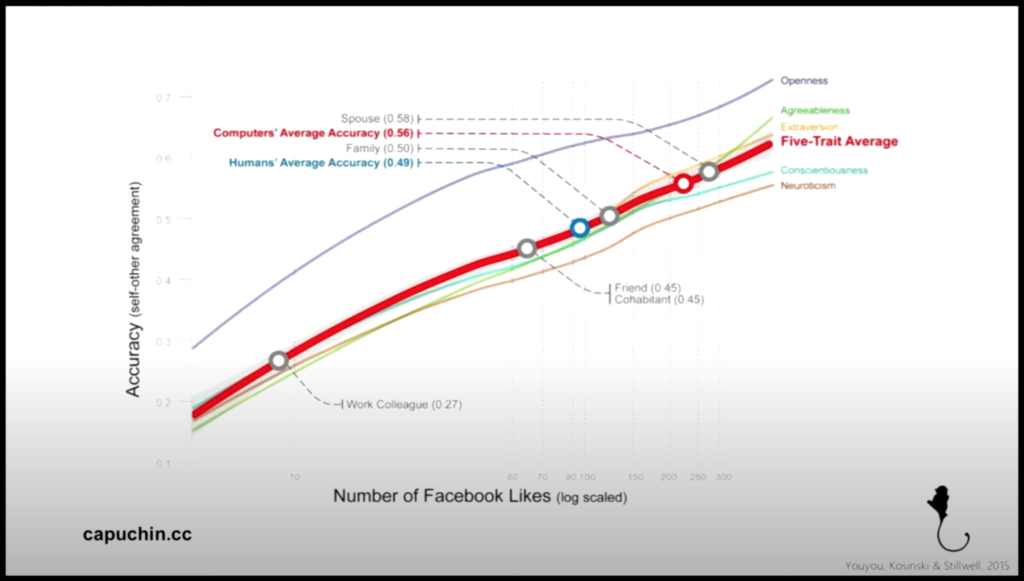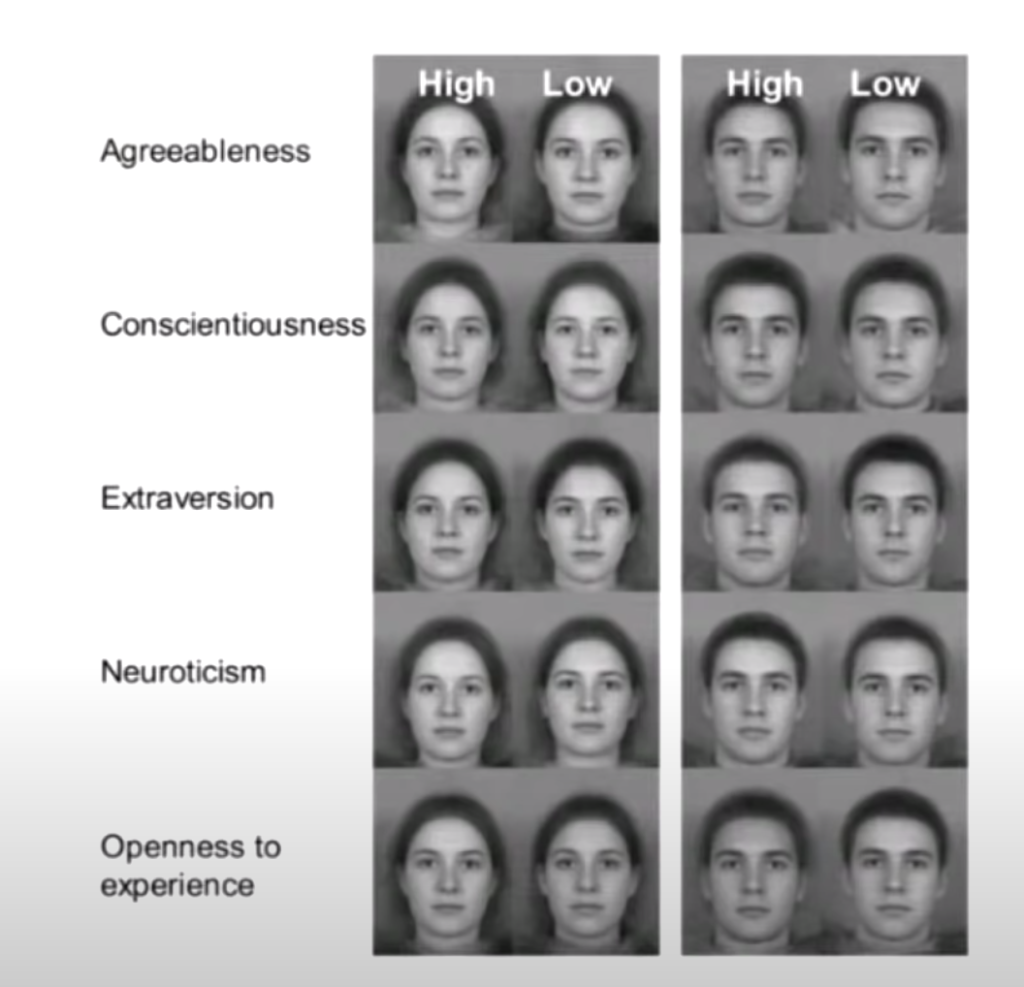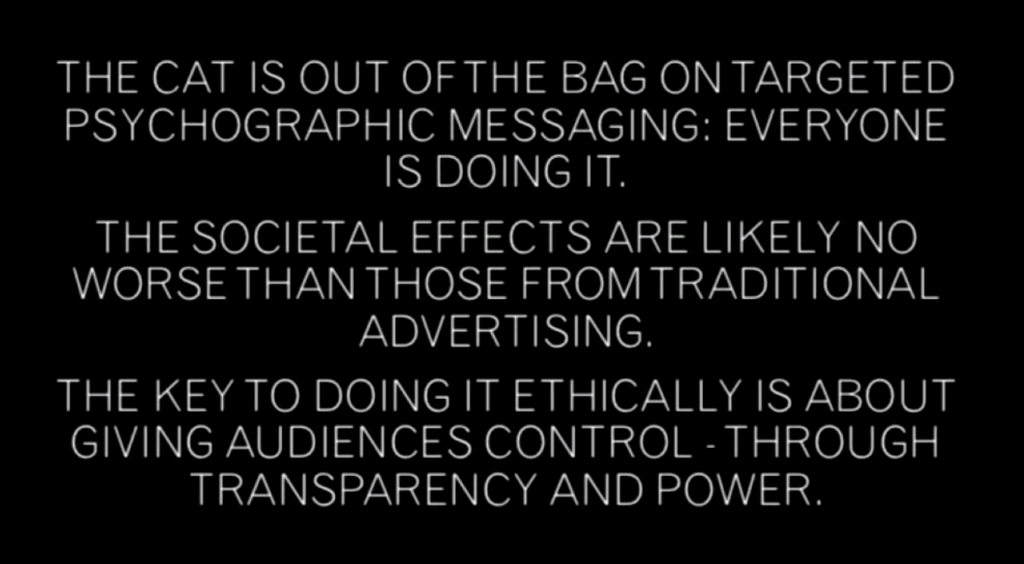By far the most interesting talk at this year’s virtual Nudgestock was by Patrick Fagan, ex Cambridge Analytica head psychologist, now partner of Capuchin.
You can watch the whole talk here, starting at around 29 minutes in.
The talk centres around the ways in which our digital footprint can be used to determine our personality type, which in turn can be used to determine what kind of advertising we will respond to the best.
As an initial example, someone who is interested in celebrity gossip is more likely to be disorganised, outgoing and extraverted, more likely to cheat on their partner and more likely to respond to ‘messy’ advertising, scarcity appeals and the ‘magician’ archetype. ‘Reclusive financial genius reveals get-rich system to limited few’ will appeal to this person rather than ‘Learn our tried and tested system for financial success’.
Through the semiotics of people’s associations, motivations and emotions, we move from psychology to technology, creating a tangible personality profile which we can use to target our marketing.

Personalities are gauged on 5 criteria, being the amount to which they are: Agreeable, Conscientious, Extravert, Neurotic and Open to Experience.
Open people are more likely to respond to the ‘wise sage’ archetype, whilst conscientious people are more likely to respond to the ‘superman’ archetype. Agreeable people are more likely to respond to social proof and positive reviews.
Brand choices also inform personality type. Open people are more likely to use Audiable, Deliveroo and Etsy. Conscientious people use Linkedin, Evernote and The Times app, whilst neurotic people are more likely to be found on Tinder, WebMD and Sky Bet.
It’s easy to see that with enough data to predict someone’s personality on these scales, we can serve targeted marketing to each segment depending on what their personality type will respond to. But how accurate can it be?
The answer is staggering. With 10 pieces of data (Facebook likes, brand preferences etc), marketing psychologists can predict your behaviour (I assume meaning your response to advertising) as well as your work colleagues. With 65 pieces of data they become as accurate as your friends or flatmates. 125 data points and they can now predict your behaviour better than your family, and once we get to 300 data points, better than your spouse.

In another study, a psychologist observed the body language of newlywed couples for 15 minutes and predicted with 83% accuracy which couples would divorce within 3-6 years. The shape of our face is now also shown to be linked to our personality type (this is different to the discredited science of phrenology).

Free Will, Choice and Self-Esteem
Patrick goes on to talk about the effects of marketing and choice on our wellbeing. The more we feel we are rational agents of choice the happier we are (reminiscent of Daniel Pink’s conclusions in ‘Motivation’). Interestingly, there is a negative correlation between how much advertising we are exposed to and how happy we are, as the role of advertising is essentially to create an unfulfilled want or an unallayed fear.
He concludes that there is nothing wrong with targeted advertising, so long as it is done with transparency and ensuring the user’s sense of choice and to act as a rational agent.

However, I feel this is is contradictory. The very essence of this approach is that we are not rational agents making rational choices. Our body language, profile of likes and even the shape of our face betray the choices we are predetermined to make.
Free will has been debunked many times over. We are simply biological robots carrying out our programming, and the further we unmask that programming the further we will be forced to accept the myth of free will and of rational choice making. This is something that society as a whole is reluctant to face, but will have to do so eventually, including all the ramifications for areas such as justice and social equality of accepting that we are neither free nor rational agents.
There is no need to try and gloss over that fact or to produce an – essentially arbitrary – veneer of ethics over it. As marketers our role is simply to understand how decisions are made and to take advantage of it.

